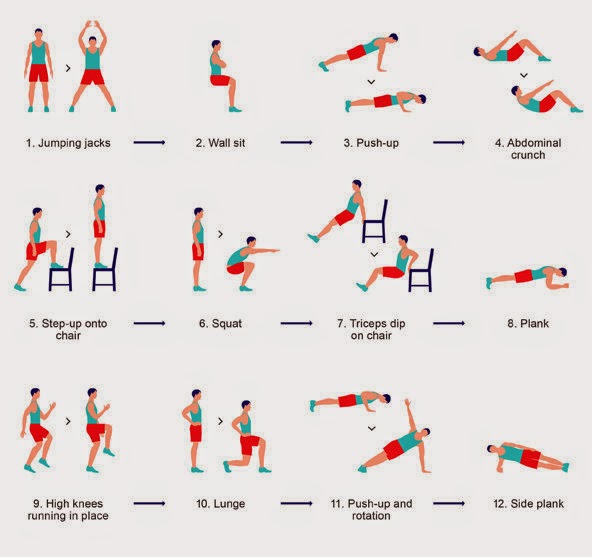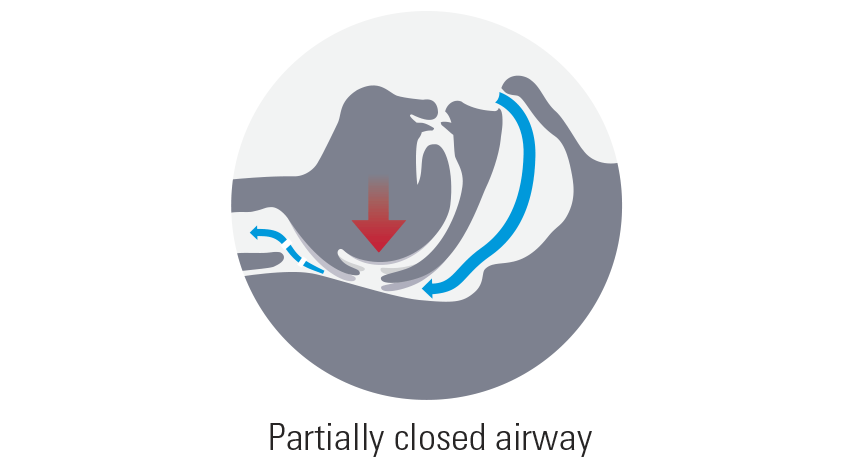13 Struggles Of Sleeping With A Snorer
Notes from Dr. Norman BlumenstockSleeping with a heavy snorer and just dealing with it is no way to live. Eh, sleep is overrated, anyway.posted on Aug. 22, 2014, at 7:29 p.m. 1. You will do everything you can to try and fall asleep before them. Sleeping pills, alcohol, going to bed an hour earlier, etc. You’ve tried it all in order to try to beat them to the punch. 2. But even if you do, their intense snoring will wake you up, anyway. They can’t be doing it on purpose, right? 3. Good luck falling asleep if they fall asleep first. It’s like …
Sleep Apnea is a Risk Factor for Strokes
Published on August 29, 2014 Research at the University of Miami aims to learn what makes sleep apnea a risk factor for strokes, the Miami Herald reports. A stroke occurs when the blood supply to part of the brain is interrupted, depriving the brain of oxygen. A stroke may be caused by a narrowed or blocked artery supplying blood to the brain or by a burst blood vessel in the brain. The interruptions in breathing that characterize sleep apnea lead to low oxygen levels in the blood and brain. “Sleep apnea triggers a series of responses in the body as …
Untreated Sleep Apnea Has Risks
Severe obstructive sleep apnea linked to high blood pressure with medication. August 17, 2014 / Author: Tara Haelle / Reviewed by: Robert Carlson, M.D. Beth Bolt, RPh (dailyRx News) The link between obstructive sleep apnea and high blood pressure has been known among doctors for a while. But it may be stronger link than most realize. A recent study found that those with severe obstructive sleep apnea, when not treated, is linked to high blood pressure even when a person is taking blood pressure medications. The most common treatment for obstructive sleep apnea is continuous positive airway pressure, of CPAP. …
Untreated snoring in kids may lead to heart disease: expert
Notes from Dr. Norman BlumenstockIs your child’s snoring a sign of sleep disordered breathing TNN | Aug 26, 2014, 10.51PM IST Kanpur: Does your kid snore while sleeping at night? If the answer is `yes’, you should immediately consult a doctor, as it can be a symptom of sleep breathing disorder, a more serious underlying problem that can affect your child’s physical and mental well-being, an expert revealed during the third day of IMA CGP.Dr JC Suri from New Delhi, said that sleep breathing disorder is most common among kids between 2-18 years of age. “This problem is seen in about 5% …
Dealing with snoring helps both partners
Notes from Dr. Norman Blumenstock“Laugh and the world laughs with you. Snore and you sleep alone” Unlike high blood pressure or blood sugars, snoring is unique in that it causes problems not just to the person with the issue, but to both partners. As a result, 25 percent of married couples state that they sleep separately because their partners snore. Besides sleeping alone, it can also adversely affect our health. For-tunately, there is a lot that can be done to turn down the noise, improve our relationships and maintain our best health. Dr. Nina’s what you need to know about …
Diabetes, sleep apnea, obesity and cardiovascular disease: Why not address them together?
Notes from Dr. Norman Blumenstock Should sleep apnea be considered in the company of obesity, diabetes, and cardiovascular disease? Researcher Salim R. Surani makes the case in a recent article titled “Diabetes, sleep apnea, obesity and cardiovascular disease: Why not address them together?” recently published in the World Journal of Diabetes. To Read This Article: http://www.ncbi.nlm.nih.gov/pmc/articles/PMC4058742/pdf/WJD-5-381.pdf …
Prospective multicenter cohort study of obstructive sleep apnea (OSA) patients treated with a custom-made mandibular repositioning device (MRD)
Notes from Dr. Norman BlumenstockThis recent French study shows the benefits of oral appliance therapy. August 22, 2014 / By Marie-Françoise Vecchierini, MD Editor’s note: Dr. Marie-Françoise Vecchierini is a recent recipient of an American Academy of Dental Sleep Medicine (AADSM) 2014 Clinical Excellence Award.Obstructive Sleep Apnea (OSA) has numerous and significant comorbidities, so its treatment is essential. Mandibular Repositioning Devices (MRD) are recommended as primary treatment for patients with mild-to-moderate OSA. Because very few studies have specifically assessed the long-term efficacy of MRDs in OSA patients who are noncompliant with continuous positive airway pressure (CPAP), my research team conducted a …
The Scientific 7-Minute Workout
Exercise science is a fine and intellectually fascinating thing. But sometimes you just want someone to lay out guidelines for how to put the newest fitness research into practice. An article in the May-June issue of the American College of Sports Medicine’s Health & Fitness Journal does just that. In 12 exercises deploying only body weight, a chair and a wall, it fulfills the latest mandates for high-intensity effort, which essentially combines a long run and a visit to the weight room into about seven minutes of steady discomfort — all of it based on science. “There’s very good evidence” that high-intensity …
Pledge to Stop the Snore
Notes from Dr. Norman BlumenstockWhy is it so important to stop snoring? Published on August 14, 2014 The National Healthy Sleep Awareness Project is urging anyone with symptoms of obstructive sleep apnea to pledge to stop the snore and talk to a doctor about sleep apnea. The project is a collaboration launched by the American Academy of Sleep Medicine (AASM), Centers for Disease Control and Prevention (CDC), and the Sleep Research Society (SRS). “Research shows that the number of sleep apnea sufferers continues to increase–the disease afflicts at least 25 million American adults, and most of them remain untreated, increasing …
Types of sleep apnea
Notes from Dr. Norman Blumenstock There are three types of sleep apnea. There are three main types of sleep apnea: Obstructive sleep apnea (OSA) Central sleep apnea (CSA) Mixed sleep apnea Obstructive sleep apnea (OSA) Obstructive sleep apnea is the most common type of sleep apnea, making up 84% of sleep apnea diagnoses.1 In most cases of obstructive sleep apnea, air stops flowing to the lungs because of a blockage (or obstruction) in the upper airway—that is, in the nose or throat. The upper airway could become blocked due to: the muscles relaxing too much during sleep, which blocks sufficient …








